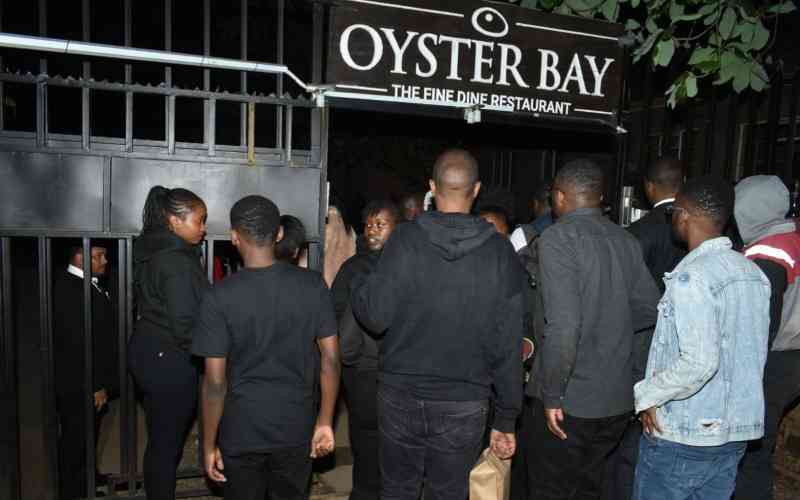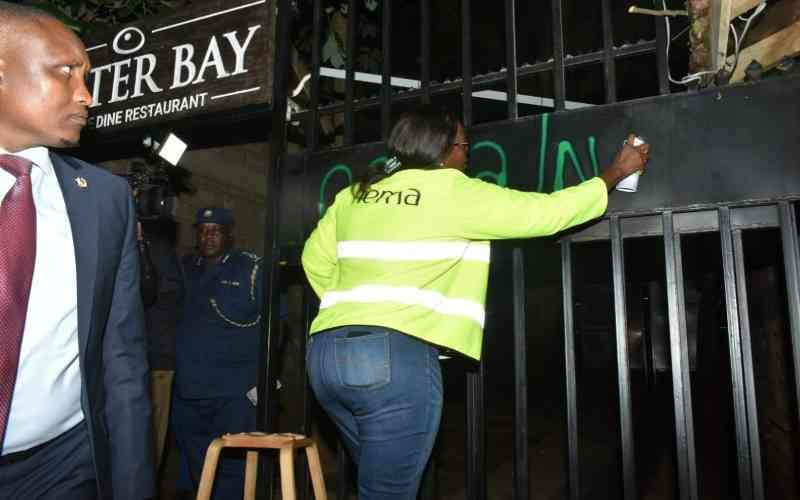
It has been almost a week since NEMA ordered the closure of Oyster Bay restaurant in Kilimani citing sound pollution complaints from residents.
The restaurant's management this week condemned the move, terming it a 'witch hunt' by competitors through state agencies.
"We have spent over 10 million shillings complying with NEMA regulations but they keep finding new loopholes, this is obviously a witch hunt by our competitors," said Sarah Mwangi, General Manager Oyster Bay.
She also alleged that closure by the Nairobi City County Government intentionally targeted a shutdown right before the Easter weekend; which happens to be the busiest weekend in the first quarter of the year.
"The restaurant was fitted with a soundproof, a roof amongst a raft of other measures which have cost the business millions of shillings. We even invited sound engineers to the premises to ascertain the standards of the work done," she said.
Oyster Bay's management holds that the county government is infringing the rights of its over 300 employees trying to earn a living and have requested Nairobi Governor Johnson Sakaja to intervene.
A staff member who spoke on grounds of anonymity decried the tough days ahead without a job while supporting a family of three.
"I'm devastated by the look of things. This job helps me support my children and my elderly parents. Where will 225 people get a job overnight in Nairobi with the state of affairs?" she asked.
NEMA officials raided the restaurant on April 6, 2023, following complaints of noise pollution, and ordered its closure.
According to a letter seen by Standard Entertainment, Kilimani residents had complained of 'extremely loud music' that interferes with their comfort, repose health, and safety.
NEMA noted that this was contrary to the Environmental Management and Coordination Act (EMCA), 1999, and Environmental Management and Coordination (Noise and Excessive Vibration Pollution Control) Regulations, 2009.
The authority also said Oyster Bay had not submitted an Environmental Impact Assessment (EIA) project report thus was operating without a license.
The letter stated that several operations had been carried out at the premise and equipment confiscated and the management had been asked to improve on certain areas but there was little cooperation.

 The Standard Group Plc is a multi-media organization with investments in media
platforms spanning newspaper print
operations, television, radio broadcasting, digital and online services. The
Standard Group is recognized as a
leading multi-media house in Kenya with a key influence in matters of national and
international interest.
The Standard Group Plc is a multi-media organization with investments in media
platforms spanning newspaper print
operations, television, radio broadcasting, digital and online services. The
Standard Group is recognized as a
leading multi-media house in Kenya with a key influence in matters of national and
international interest.



